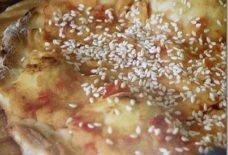10 Reasons to Hug an Arab
With the resurgence of negative rhetoric surrounding Arabs and Muslims, it is now more than ever that we need to recount the rich civilization and history that defines the Middle East. It is one that has had great influence not only on America, but on the entire world. Below are ten contributions, many of which we could not live without, that may encourage you to acknowledge, thank, or even hug an Arab.
1) Cappuccinos, Lattes, and Mochas, Oh My!
If you rely on a good ‘cup of joe’ to get you through the day, then you might find it interesting to know that coffee beans were first cultivated and brewed as rocket fuel by Yemeni tribesmen. When it was learned it could be consumed, coffee production put Yemen on the map, namely the Red Sea port city of Mocha— which is the source of the chocolate flavored coffee beans that gave rise to the ‘Mocha’ we drink today.
2) Now I know my A-B-C’s
Believe it or not, the A to Z English alphabet finds its roots in Ancient Egypt. The first pure alphabet, derived from the alphabetic principles of Egyptian hieroglyphics, was established as a means of understanding the Semites who worked in Egypt at the time. Most of the world’s alphabetical systems created since then either hail directly from this development or were inspired by its design.
3) Strummin’ Away
Whether it’s acoustic or electric, the modern day guitar is currently one of the most popular instruments both in United States and beyond. The guitar as we know it today descends from the prominent Arabic instrument known as the oud, which was introduced to Andalusia, Spain (and later the Americas) by way of the Moors. Still in existence, the oud remains an identifiable characteristic to Middle Eastern classical music.
4) In Sickness and In Health
In ancient cultures, religion and medicine were linked—with the most primitive hospitals established by prominent religious institutions. The earliest documented institutions aiming to provide cures were Egyptian temples. The Arabs were the first to address mental health issues in particular, with the first ever psychiatric hospital standing in Baghdad, Iraq.
5) Crazy for Candy
We rarely think about the substance that makes many of our favorite indulgences a possibility. Gum Arabic—historically discovered and cultivated in Arabia— is a complex mixture of polysaccharides and glycoprotein that is used mainly within food production as a stabilizer. Gum Arabic is an essential ingredient for gummy candies (i.e. Gummy Bears, Sour Patch Kids), marshmallows, and M & M’s just to name a few.
6) Easy as 1-2-3
Arabs could count to 10 long before the numerical system was even introduced to Europe and the Americas. The digits were predominantly used by the Arabs of North Africa who developed the system as way to quantify painting and weaving patterns, building and construction designs, and land measurements. It is also this number system which begat advanced arithmetic such as Algebra and Geometry.
7) Color Me Beautiful
As women all over the world pucker up to put on lipstick, do they ever think ‘Who invented this?’ Records show that the notable Arab Andalusian cosmetologist Abu al-Qasim al-Zahrawi created solid lipsticks, although earliest application of color to the lips dates back to Ancient Egypt. Eyeliner and eye shadow also originated in the Middle East as both Arab women and men saw dark eye make-up as a way to deflect the piercing sun.
8) Wheel of Fortune
Many historians regard the wheel as one of the oldest and most important inventions of our time. Originating in Mesopotamia (current Iraq) the wheel came to fruition in the function of a potter’s wheel—assisting in the development of ceramic utensils. Since then, its functions have diversified— serving as steering wheels, wheel chairs, tires, bycicle wheels, machinery/production wheels, and of course, the ferris wheel.
9) I Scream, You Scream, We all Scream for Ice Cream
While the creator of ice cream cones is not officially recorded, they are thought to be the brainchild of Syrian pastry maker, Ernest Hamwi. The story follows that Hamwi was selling zalabia, a crisp Arabic pastry when his neighboring ice cream vendor ran out of dishes. Hamwi came to his aid by rolling the warm zalabia into cones that could hold ice cream, and as any good story ends, the rest was history!
10) Perfumania
Can’t go without deodorant, body splash, or perfume? You would be interested to know that the idea to mask body odor came from Ancient Egyptians who created natural scented oils and ointments to keep clean and hydrate their skin in the dry heat. However, it is Arabian chemist Al-Kindi, who should be credited for the discovery of scent-based chemical formulas. In his famous book, Al-Kindi names 107 methods and recipes for perfume making.
There you have it— 10 reasons to Hug an Arab. Get to huggin’.
Ameera David
Arab Detroit



